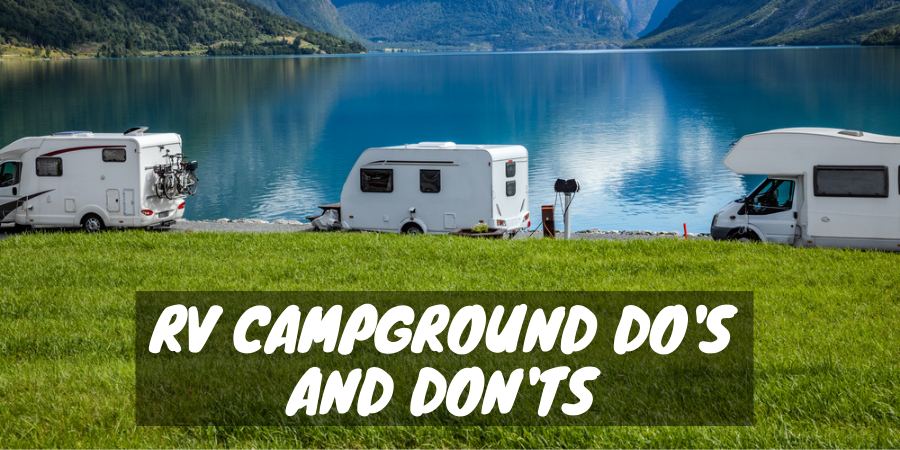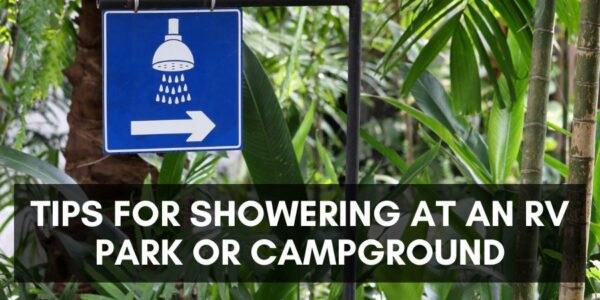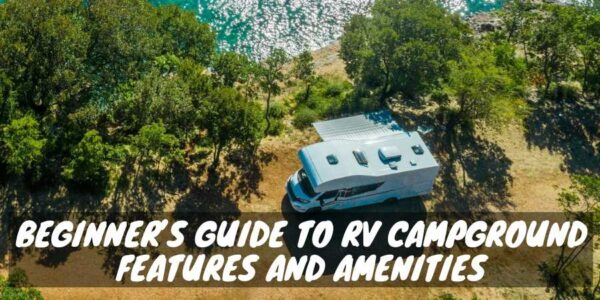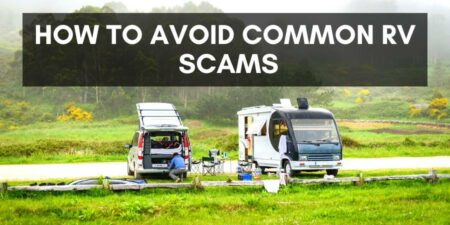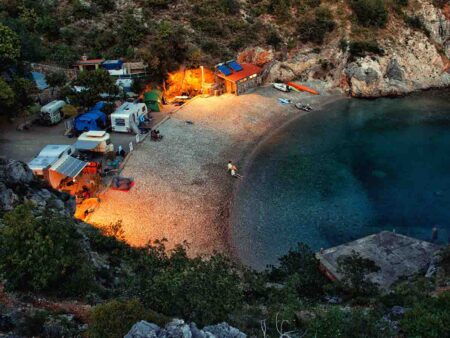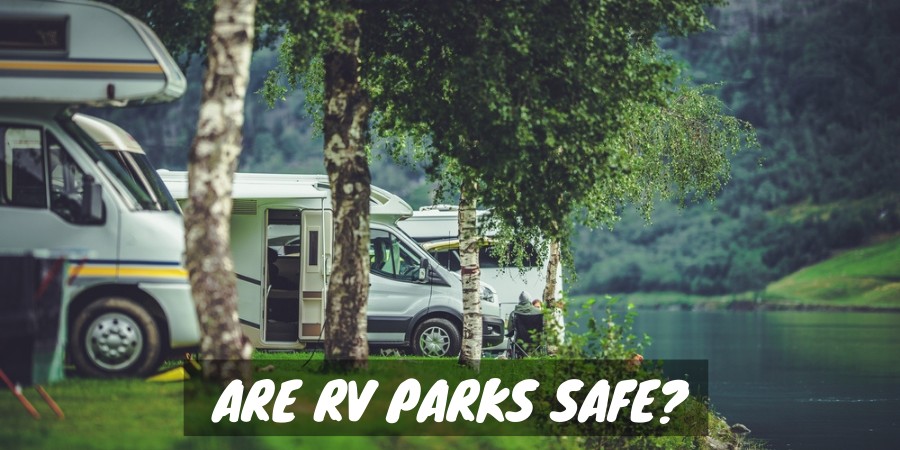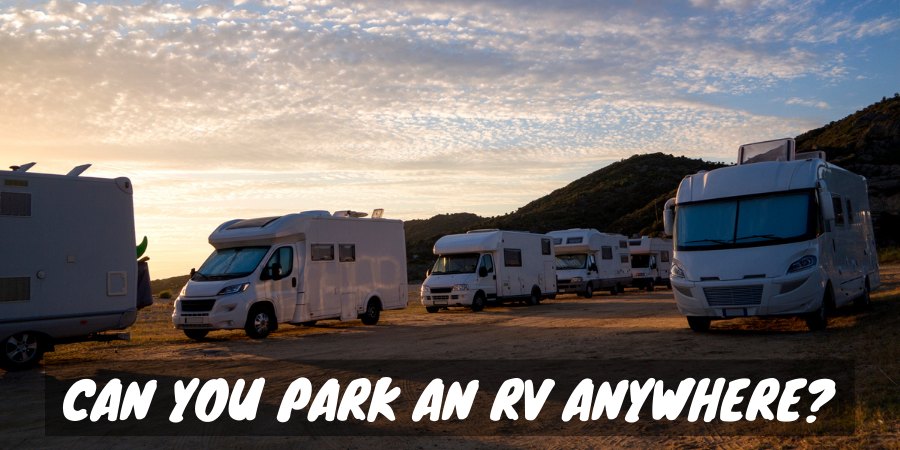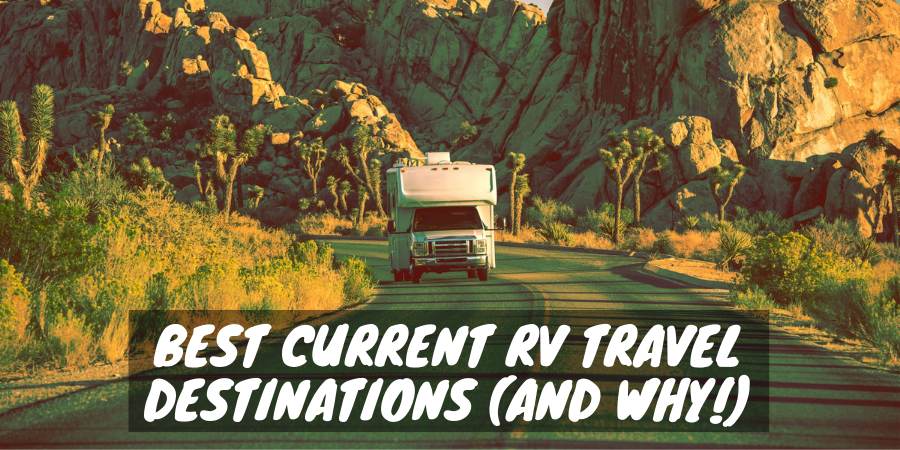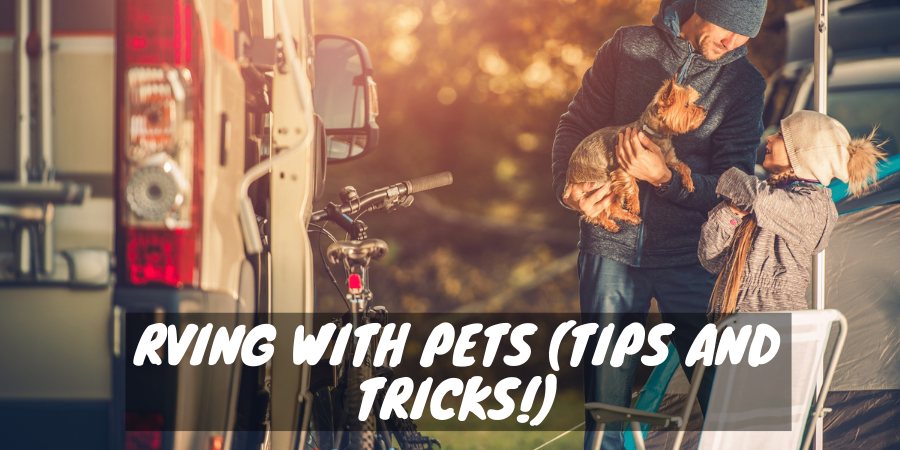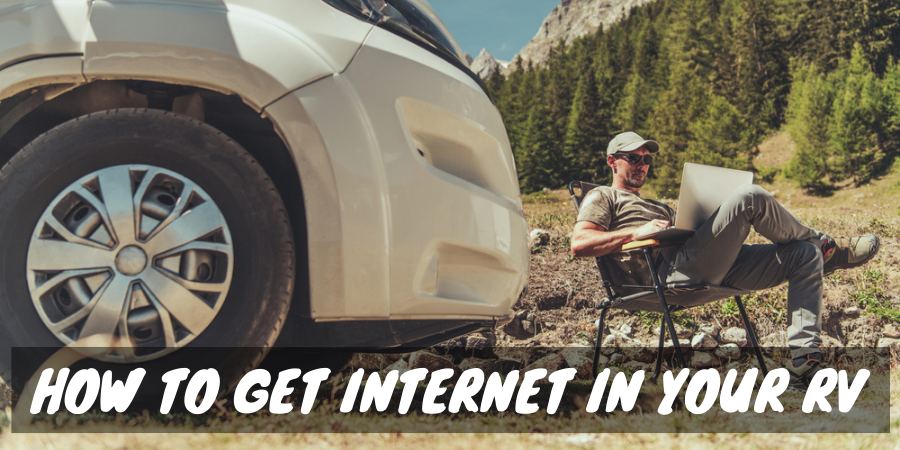Want to improve your next camping trip?
Take it from me: after spending years as a full-time RVer with stints workamping at various campgrounds, there are many things RVers do that upset campground staff.
This article is a must-read if you spend most of your camping time at RV parks.
From making your reservation through check-out, let’s look at what you can do to keep park staff happy and learn a few tricks most campgrounds don’t want you to know!
Reservation Do’s and Don’ts
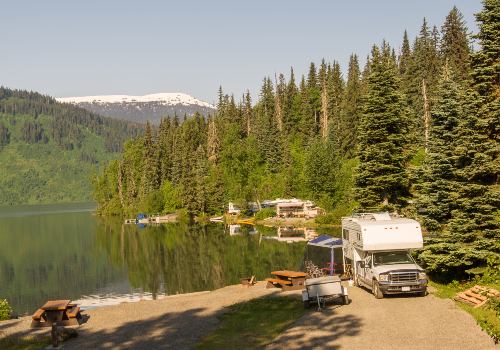
Even experienced RVers make mistakes during a reservation that can alter their campground spot, cause confusion, cost them more money than necessary, or even cause a cancellation.
Online Booking Tips
Online campground reservations are popular.
While national and state park reservations are straightforward, as most campsites are very similar, private or corporate-run campgrounds often have significantly different campsites within the park.
TIP #1: Booking a campsite online typically offers up spots that fit the length of your RV, nothing more, nothing less.
You may arrive to find you can park the camper but don’t have the room to open your slides or park your truck.
DO know that many campgrounds utilize a central online reservation system to save on costs, but campers often have no clue these “centers” are nowhere near the park, and what information they post may not be current or even correct.
Online reservations often fail to post the real cost as most don’t apply state or local taxes, cable hookup fees, or other add-ons until you arrive at the park.
Lastly, many online reservations come into the campground office in batches, which are incomplete until a staff member manually types them into their park’s reservation system.
If the morning staff forgets to check and enter online bookings, you may arrive to find afternoon staff with no record of your reservation.
Please don’t blame the office worker for higher pricing or missing reservations. They are just as frustrated by this as you are.
TIP #2: If you must book online, follow up with a direct phone call as soon as possible to confirm the campground has your booking, get an actual price, and give them any pertinent information about your camper.
When planning a camping trip, online booking platforms can be incredibly convenient for reserving campgrounds. However, solely relying on these services might not always be sufficient. After completing your online booking, it’s highly advisable to make a direct phone call to the campground as soon as possible.
Here are 8 reasons why:
1. Confirmation of Booking: Online systems can sometimes experience glitches or delays in updating. By calling the campground directly, you can ensure that your reservation has been successfully recorded in their system.
2. Accurate Pricing: Online platforms may not always have the most current pricing information. A direct call allows you to confirm the actual cost of your stay, including any additional fees that might not be evident online (like vehicle fees, pet fees, or amenities charges).
3. Personalized Information Exchange: Every camper and camping situation is unique. A phone call allows you to inform the campground staff about any specific needs or requests related to your camper or camping style. This might include the size or type of your camper, the need for certain hookups (like electricity or water), or accessibility concerns.
4. Clarifying Campground Rules and Amenities: Websites may not have comprehensive or updated information about campground rules, amenities, and facilities. A phone call can provide clarity on aspects such as quiet hours, fire regulations, availability of showers or laundry facilities, and Wi-Fi access.
5. Building a Relationship: Engaging in a direct conversation with the campground staff can help in building a rapport. This can be beneficial for obtaining a prime camping spot, getting insider tips about the area, or for favorable treatment during your stay.
6. Emergency and Arrival Information: During the call, you can inquire about what to do in case of late arrival or an emergency. Also, ask about check-in and check-out times and procedures.
7. Special Offers or Discounts: Sometimes, campgrounds offer special deals or discounts that are not advertised online. A phone call might make you aware of any such offers.
8. Cancellation and Change Policy: Understand the campground’s policy on reservation changes and cancellations directly from a staff member to avoid any surprises.
By following up your online booking with a phone call, you can ensure a smooth and enjoyable camping experience, with all your specific needs and expectations clearly communicated and understood by the campground staff.
Phone Reservation Do’s and Don’ts
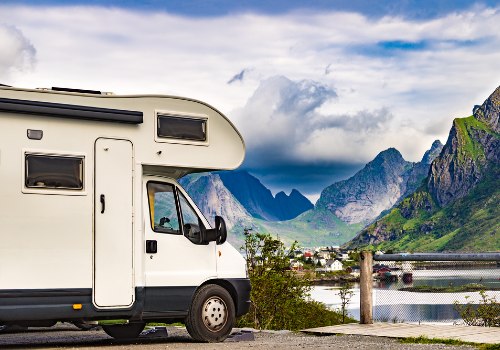
DO call a campground to make a reservation so you can benefit from the knowledge office staff has of each individual campsite.
Most staff are fellow campers, listen to your needs, and try to place you at a campsite where you’ll be most comfortable.
DO verify the dates of stay sent in your confirmation email. Some reservation systems want the last night of stay, not the check-out date, which causes mistakes.
DO have all the information about your camper handy before you call. The length and type of RV you own and the location of slides are critical for securing the right campsite.
I can’t count the times I take a site reservation, and the guest tells me something like, “It’s a 25-foot travel trailer.” When they arrive in a 35-foot fifth wheel with three slides and find out they can’t fit in the spot I reserved, they are angry!
DO trust that the park staff will place you in the best spot according to the size and type of your camper.
A spot that is easy to back in a 30-foot motorhome may be impossible with a 30-foot travel trailer and truck combo due to obstructions, even if you think it will fit.
DON’T give a reservationist bad information. Often, campgrounds are fully booked, and if your camper doesn’t fit into the reserved site, you’re left back on the road (or boondocking at Wal-Mart).
Park Map Reality
DO know that most private campground maps are ridiculously out of scale.
The spot that looks conveniently close to the bathhouse could be five feet from the building, and you’ll have constant foot traffic from strangers around your campsite all day and night.
DON’T take the campground map too seriously if you haven’t been to that park before. Many amenities, such as a “snack bar,” may only be an overhang with a vending machine underneath or a “game room” that only has a pool table.
Guests
DON’T lie about the number of people in your party. Unless the park is huge, the staff will notice excessive guests at your site, and you’ll get on their bad side for being “sneaky.”
DO be aware that most nightly rates are based on two people, with extras and upcharges, even though the website says up to six people are allowed for RV and tent sites.
What do you do if you’re a large family with more than four kids?
TIP #3: If you’re pleasant to the reservationist and keep a low profile during your stay, camp staff will “overlook” extra guests. I did this all the time, especially for families that had a lot of kids and a small vacation budget.
Camper Age
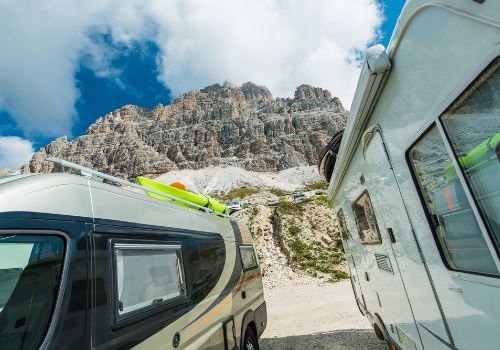
Most parks have a 10-year rule on camper age, but very few enforce the rule outside of fancy “Motorcoach Resorts.”
The rules are in place to keep ratty-looking, leaking RVs from making other campers feel unsafe and county regulators from shutting down the park.
DO feel free to say your camper is nine years old if it’s really 15, as no staff will ask for proof when you arrive.
DO keep your “vintage” recreational vehicle in good condition, and save pictures on your phone to send to the reservationist for approval if asked.
DO know that RV salespeople use the age rule as a scare tactic to sell you a new model.
Campgrounds are there to make guests happy and, more importantly, to make money. As long as your camper is clean, in decent shape, and not leaking oil, age shouldn’t be an issue.
Towables
DO tell the reservationist you are towing a trailer, boat, or jet skis if you’ll be bringing them along.
Some parks don’t allow them at all or may not have room for you to park them unless you pay for an additional site. Staff can suggest alternatives for parking if you give them a chance.
DON’T assume a campground will accommodate your towable just because you are already there. It likely won’t end well.
Ask About Discounts
DO ask about discounts during your reservation and again at check-in before you pay. Some systems won’t allow discounts after you run a credit card payment, and getting a refund can be problematic if a manager isn’t available.
TIP #4: Be careful with some travel or campground discount cards, as many won’t save money.
Some plans have limits on discounts or no parks near your favorite camping destination.
KOA is the worst, as they routinely overcharge for campsites and pretend their amenities are first-class. Even with your 10% discount, you’re most likely still paying more than the person paying full price at the next campground, and their pool is probably nicer, too.
Arriving at the Campground Do’s and Don’ts
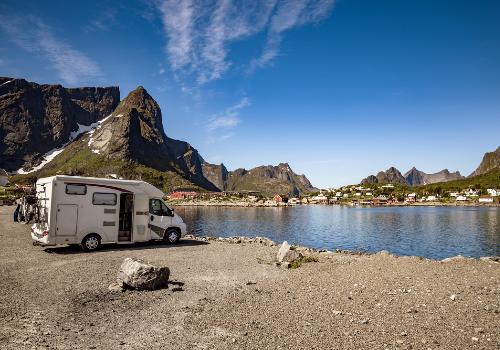
DON’T arrive early unless you call ahead and get approval from staff.
RVers love to sleep in, and most never leave until right before check-out time, which is either 11 AM or noon.
Park workers hate early RV arrivals blocking already tight roads as other campers are trying to exit. Some campsites have maintenance issues that need addressing before the next guest parks.
If you show up early and act like a jerk because you’re tired and can’t park, remember that the staff is making minimum wage and has a short fuse for RVers with poor planning and attitudes.
Let’s now pretend you arrive on time and check-in without issues. Now you need to park your camper at your campsite.
DO let staff know if you’re new to RVing or are uncomfortable parking unassisted.
An escort can help spot as you park your RV (or quietly park it for you) so you can avoid embarrassing and costly accidents like running over the power pedestal.
Want to Connect With a Community of Over 1,078 RV Enthusiasts?
DO take your time and listen to park staff if they guide you. They park campers in that same spot every week and know exactly when you should cut your wheels to avoid hitting that tree branch or when you need to quit backing up so your sewer hose can reach the connection.
DO ask staff how to make proper connections to power, sewer, and water if you’re new to camping.
Nothing infuriates staff more than “know it all” guests who blow out their RV wiring because they connect to the power wrong or who don’t listen to escort spotters and run over the water spigot, causing the entire park to lose water.
TIP #5: Arrive during daylight and staff work hours when possible, as parking an RV or setting up tents in the dark can be extra troublesome when staff isn’t on duty.
You may not see that ditch or know that a section of your site floods during rain.
DON’T be afraid to call the emergency after-hours number when you arrive late. Management wants you to set up camp safely and start your vacation off right.
DO ask for camping gear before buying it. Most campgrounds keep a stash of things they will lend out, like extra grills, hoses, sewer donuts, pool floats, or sturdy ramps for people who have difficulty climbing their RV stairs.
DO treat outdoor staff with extra kindness, as they are the people you encounter most during your trip.
When you are friendly, the staff may give you free firewood, free ice cream for the kids (or you!), let you borrow their kayak or fishing poles, or help you fix that leaky hose connection.
When you’re mean, they will ride past your spot continually looking for “infractions” so they can have you kicked out early.
Campsite Do’s and Don’ts
DO have the right connector that provides a tight seal on your sewer connection. It’s stunning how many campers think it’s fine to cram the hose end into the pipe and leave it there.
Not only will the park get a fine if the county inspector drives through, but you’ll stink up your site and plenty of the surrounding ones as well with sewer gas.
DON’T use “flushable” wipes or dump grease into your wastewater tanks, as both of these cause constant clogging in RV park sewer lines. Not only are sewer backups awful for outdoor staff to clear, but the mess and smell disrupt the comfort of all campground guests.
DO check that your 12-volt antenna is off before you complain to staff about your fuzzy cable reception. It’s incredible how many RVers have no clue about this little button, typically hidden behind the TV or in a cabinet nearby.
With the advent of direct cable connections in many campgrounds, not turning off this antenna will ruin the picture, so find out where it is so you don’t embarrass yourself.
TIP #6: Is the campground adding an upcharge for cable hookup? Some parks (oh, that darned KOA again!) are notorious for extra cable fees.
Most guests don’t know that all the pedestals have cable, whether you pay or not, so if you connect, no one will be any wiser, and outdoor staff doesn’t have time to monitor such a trivial matter.
DO follow general campground etiquette rules. Learn them and use them as staff hates having to placate other guests who are disturbed by your rudeness.
DO bring your pets camping! Campgrounds are some of the most pet-friendly places around.
DO be vigilant about cleaning up after your pet, as staff hates guests who don’t since they now need to clean it up.
DON’T think your pet doesn’t need to be on a leash. They can and will run off.
Check-out Do’s and Don’ts
Check-out day has arrived.
DO plan to exit your site on time, as the staff has limited time to clean, mow, and check your campsite before the next guest arrives.
TIP #7: Inquire with outdoor staff about a late check-out before calling the office, which will often charge you a fee. Outdoor staff will know if a guest is coming in behind you, and if not, they can give you an extra hour or two at no charge if you’re nice.
DON’T bother stopping at the office to check out officially. It just bogs down the roadways near the entrance, and the outdoor staff knows when you leave your site.
Final Thoughts
How do you know you’ve been an ideal campground guest? Staff will genuinely encourage you to come back again.
How do you know you were a bad guest? You will be unable to make a future reservation. Blacklists do exist at every RV campground.
Camping is fun when you follow the written and unwritten campground rules and treat workers with respect. By working together, camping is safe and enjoyable for everyone!
10 Unwritten Rules of Camping (Video)
"Man cannot discover new oceans unless he has the courage to lose sight of the shore."
-- Andre Gide

